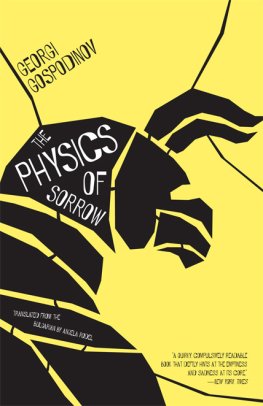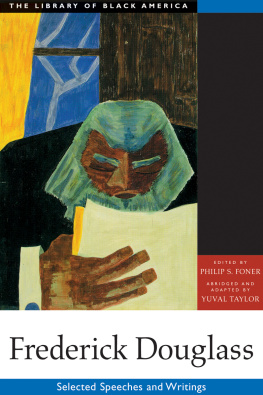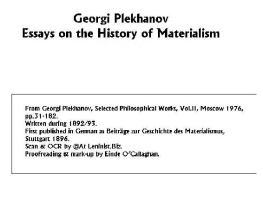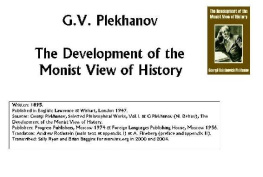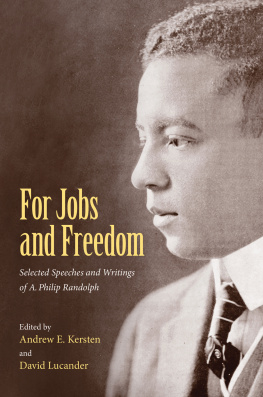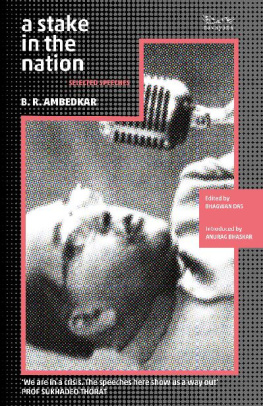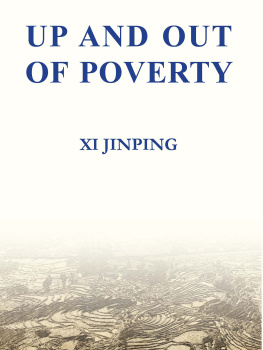Georgi Dimitrov - Selected speeches and articles
Here you can read online Georgi Dimitrov - Selected speeches and articles full text of the book (entire story) in english for free. Download pdf and epub, get meaning, cover and reviews about this ebook. City: London, year: 1951, publisher: Lawrence & Wishart, genre: Politics. Description of the work, (preface) as well as reviews are available. Best literature library LitArk.com created for fans of good reading and offers a wide selection of genres:
Romance novel
Science fiction
Adventure
Detective
Science
History
Home and family
Prose
Art
Politics
Computer
Non-fiction
Religion
Business
Children
Humor
Choose a favorite category and find really read worthwhile books. Enjoy immersion in the world of imagination, feel the emotions of the characters or learn something new for yourself, make an fascinating discovery.

- Book:Selected speeches and articles
- Author:
- Publisher:Lawrence & Wishart
- Genre:
- Year:1951
- City:London
- Rating:5 / 5
- Favourites:Add to favourites
- Your mark:
- 100
- 1
- 2
- 3
- 4
- 5
Selected speeches and articles: summary, description and annotation
We offer to read an annotation, description, summary or preface (depends on what the author of the book "Selected speeches and articles" wrote himself). If you haven't found the necessary information about the book — write in the comments, we will try to find it.
Selected speeches and articles — read online for free the complete book (whole text) full work
Below is the text of the book, divided by pages. System saving the place of the last page read, allows you to conveniently read the book "Selected speeches and articles" online for free, without having to search again every time where you left off. Put a bookmark, and you can go to the page where you finished reading at any time.
Font size:
Interval:
Bookmark:
With an Introduction by
HARRY POLLITT
1951 LAWRENCE & WISHART LTD. LONDON
A true revolutionary and proletarian leader is formed in the fire of the class struggle and by making Marxism Leninism his own.
It is not enough to have a revolutionary temperament one has to understand how to handle the weapon of revolutionary theory.
It is not enough to know theory one must also forge oneself a strong character with Bolshevist steadfastness.
It is not enough to know what ought to be done one must also have the courage to carry it out.
One must always be ready to do anything, at any cost, which is of real service to the working-class.
One must be capable of subordinating one's whole personal life to the interests of the proletariat.
G. DIMITROV
(Preface to The Life of Ernst Thaelmann).
Printed in Holland by De Ijsel Press Ltd. Deventer, Holland
ACKNOWLEDGMENT
The publishers are grateful to John Lane, the Bodley Head Ltd., for permission to reproduce in this collection the translation of Dimitrov's final speech at Leipzig originally published in The Reichstag Fire Trial, 1934
In the passing of Georgi Dimitrov, July 2, 1949, the workers of the world, and the Bulgarian workers in particular, lost one of the most selfsacrificing, thoughtful revolutionary leaders, and one of the greatest Marxists of the present epoch.
The life of Georgi Dimitrov is a glorious page in the struggle of the working people all over the world against fascism and war and for the victory of socialism.
His life and activities are inseparably linked with the Bulgarian people with its struggles for liberation from the imperialist yoke and from capitalist oppression over the last fifty years, with the people's sufferings and victories, and, finally, with their successes in building the basis of socialism.
1 can see him now, unfolding to me his dream of what the workers and peasants of his beloved Bulgaria would make of their beautiful country. And in spite of all the difficulties they would have to surmount, he had the firm and proud conviction that they would succeed.
Georgi Dimitrov's unbreakable faith in the working class gave him, as it gives all who possess it, a strength which the capitalists and social democratic organisations can never give the faith to triumph over all obstacles, never to be afraid of anything that the enemies of the workers may try and do, and the certainty both of the righteousness of our cause and that it will finally triumph. This lay at the heart of everything to which Dimitrov set his hand, from the time when as a young lad he commenced his activity in the revolutionary movement, to the day he became the proud leader of the new Bulgarian Workers' and Peasants' Fatherland.
Georgi Dimitrov was born on June 18, 1882, into a poor workers' family. It was a family of fighters. His elder brother, Constantine, was secretary of the Print Workers Trade Union in Bulgaria; his other brother Nikolai, living in Odessa, took an active part in the illegal activities of the Bolshevik Party, for which he was sentenced to lifelong exile in Siberia, where he died. His third brother, Todor, was an active Communist in Bulgaria, and was murdered by the police in 1925. The rest of the family also took part in the struggle of the working people.
It was in such a family as this that Georgi Dimitrov was brought up.
From a very early age he suffered hardships, and at twelve years of age he had to leaveschool and become a printer. At 15 he entered the workers' revolutionary movement, and at 18 he was already secretary of the oldest trade union in Bulgaria, the Print Workers Union.
In 1902, Georgi Dimitrov became a member of the Bulgarian Social Democratic Party, and joined the struggle of the revolutionary Marxist wing, known as the "Narrow Socialists". In 1909 he was elected secretary of the revolutionary trade unions, formed and led by the party of the "Narrow Socialists", in which position he remained until 1924, when the trade unions were dissolved by the fascist government.
As secretary of the Sofia organisation of the Narrow Socialists, as a County Councillor, a member of Parliament, member of the Central Committee of the Bulgarian Communist Party, General Secretary of the Central Committee of the Bulgarian trade unions, Dimitrov put his entire energy and his whole personal life at the service of the liberation of the working class.
Organising the workers in their everyday struggle, Dimitrov strove to combine the economic and political struggle of the working class. He ceaselessly explained to the workers that the historic task of the proletariat, the destruction of capitalism and the creation of a socialist society, could be fulfilled only by a persistent political struggle against the ruling class. For his incomparable activity in the struggle against the exploiters and for the defence of the interests of the workers, he won the love of the entire Bulgarian people.
It is characteristic of Georgi Dimitrov that from the very beginning of his political activity he stood firm by the principles of proletarian internationalism. There was no great event in the life of the international working class movement which did not find its response in the Bulgarian trade unions, led by Dimitrov.
The Bulgarian workers carried out strikes and demonstrations in solidarity with the first Russian Revolution of 19057. Dimitrov organised collections to help those who were taking part in the revolutionary struggle in Russia, as he did for those taking part in the great strikes in Great Britain, Sweden, Switzerland, Spain and other countries.
During the First World War, Dimitrov organised the struggle against
Bulgaria's being involved. In 1915, when the Bulgarian Government hurled its people into the war on the side of the German imperialists, the "Narrow Socialists" issued the call to struggle against the imperialist war. In parliament they voted against military credits and unmasked the robber aims of the w ar.
The members of the Central Committee were arrested and put on trial. Dimitrov among them was thrown into prison for his revolutionary work among the soldiers.
At the outbreak of the October Revolution in Russia in 1917, the "Narrow Socialists" taught the Bulgarian workers and peasants to follow the path of the workers and peasants of Russia. Mutinies and great demonstrations culminated in a general uprising which knocked Bulgaria out of the war in September 1918.
Under the leadership of Blagoev and Dimitrov, in 1919, the Party of the "Narrow Socialists" changed its name to the Bulgarian Communist Party and joined the Third International. In 1921, Dimitrov was a delegate of the Bulgarian Communists to the Third Congress of the Communist International in Moscow, where for the first time he met the leaders of the world working class movement Lenin and Stalin.
May I say, with all due modesty, that this was also the first occasion I had the pleasure and honour of meeting Georgi Dimitrov an event I can never forget, because the personal charm of the man and his political sagacity made an indelible impression on my mind.
In 1923 the fascist government of the hangman Alexander Tsankov began a bloody onslaught against the Bulgarian working people. It was met with an armed uprising. Dimitrov took the lead and set an example as a brave and unshakeable revolutionary leader. The Bulgarian fascists succeeded in crushing the uprising, but nevertheless, as Dimitrov said, it had created a deep breach between the people and the government which nothing could bridge.
***
After 1923, compelled to emigrate abroad, Dimitrov led the life of a professional revolutionary. He worked actively in the Executive Committee of the Communist International and became one of the organisers of the international struggle against fascism.
Font size:
Interval:
Bookmark:
Similar books «Selected speeches and articles»
Look at similar books to Selected speeches and articles. We have selected literature similar in name and meaning in the hope of providing readers with more options to find new, interesting, not yet read works.
Discussion, reviews of the book Selected speeches and articles and just readers' own opinions. Leave your comments, write what you think about the work, its meaning or the main characters. Specify what exactly you liked and what you didn't like, and why you think so.

